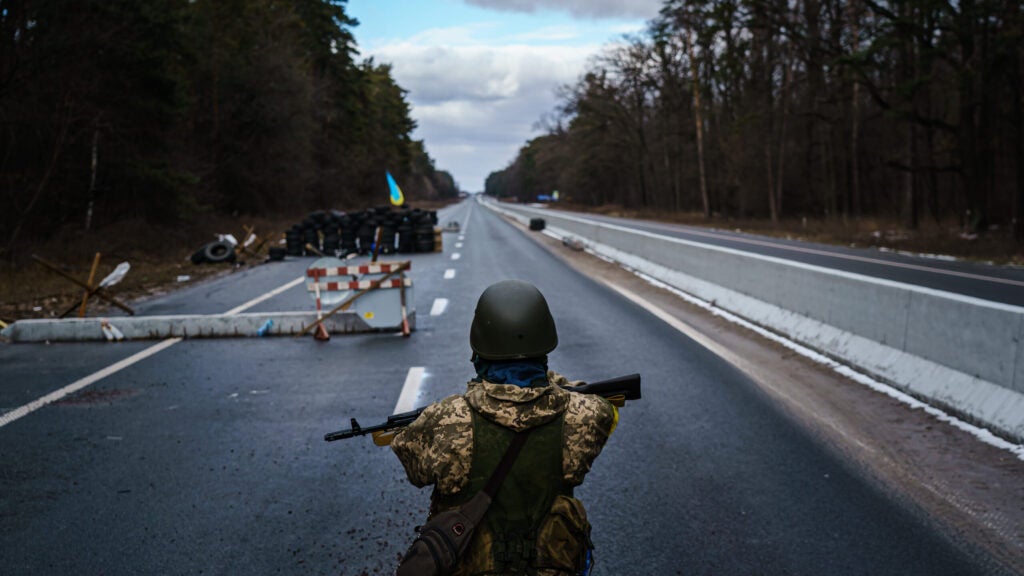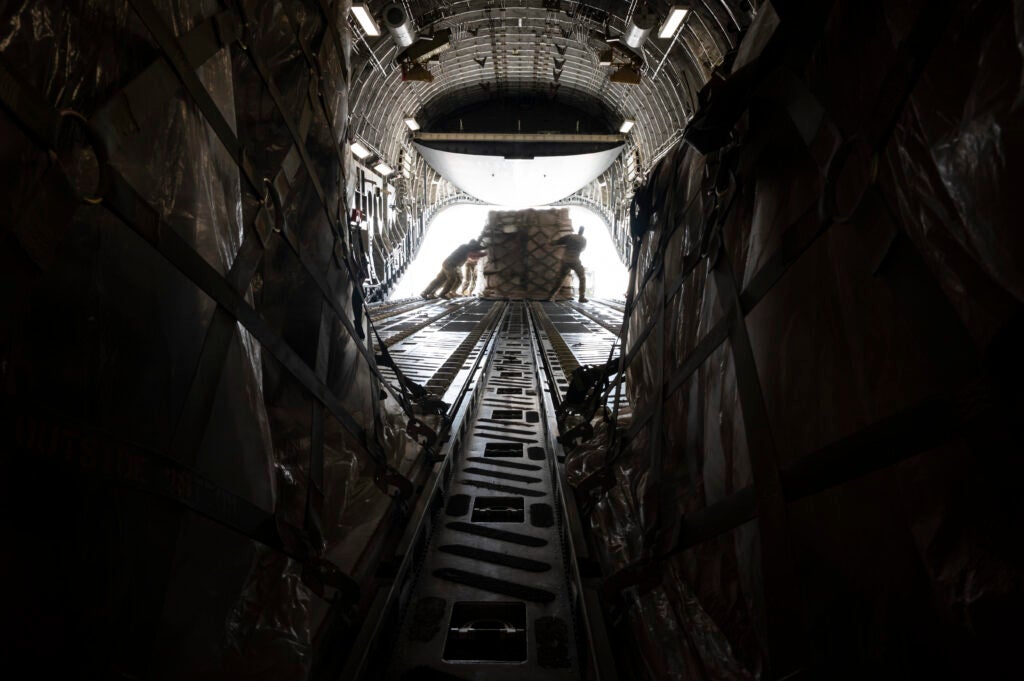The Russian military has been plagued with logistical challenges almost from the beginning of its invasion of Ukraine. And now, Moscow is looking to China to bail them out with financial and military assistance. Among what has been requested: Meals, Ready-to-Eat, otherwise known as MREs.
Russia has requested Chinese MREs in a move that “underscores the basic logistical challenges” the Russians have been experiencing, according to CNN, which “raises questions about the fundamental readiness of the Russian military.” And it’s not just that they may not have any MREs, but the ones they do have seem to be years old. At least one video circulating online appears to show a Ukrainian soldier holding up a Russian MRE that expired in 2015.
Subscribe to Task & Purpose Today. Get the latest in military news, entertainment and gear in your inbox daily.
There are several takeaways one can glean from Russia’s request. According to Mark Cancian, a retired Marine colonel and a senior advisor to the Center for Strategic and International Studies’ International Security Program Russia expected a short campaign and probably listed items like rations “way down” on Russia’s budget priorities.
But the broader takeaway is simple: “The Russian military is not as good as we thought it was,” Cancian said.
Steven Weintraub, also a retired Marine Corps colonel who left the service as a senior logistician in 2019, agreed.
“We had always built them up to be — back from the 90s, early 2000s — this large and ominous fighting force. But I think what we’re seeing is that it’s been more of a facade,” said Weintraub, now the chief strategy officer of Vet Tix. “And their capabilities, and not only their capabilities but their leadership, has been stripped away in their lack of being able to execute complex operations and attacks, and even the planning that’s depleted over time. That’s probably a telltale, a peak behind the curtain to their military industrial complex, that it’s not what it used to be, and we as Americans and probably the West have just assumed and overestimated their capabilities.”

Indeed, the problems the Russian military has faced don’t stop at a lack of food. On March 8, less than two weeks after the invasion began, the Russian military appeared to be “struggling” to address fuel and food shortages, and “making sure that they can … arm themselves and defend themselves,” a senior defense official told reporters.
The official told reporters on Friday that they didn’t believe Russia had “properly planned” for the invasion of Ukraine.
“We’re talking about a massive, large-scale, largely ground operation supported by air … we don’t believe that they properly planned and resourced this for the scale that they were operating on,” the official said. Based on what he’s seen, Weintraub said it seems Russia believed they’d go into Ukraine “so fast” that they’d then be able to “go back to their supply in Russia” and push forward things like food, ammo, and equipment.
Katherine Lawlor, an analyst at the Institute for the Study of War, told Task & Purpose in an email that Russia “likely counted on the shock of its invasion to rapidly overwhelm Ukraine’s defenses.” But that hasn’t been the case.

“Almost all of Russia’s advances remain stalled,” the senior defense official told reporters on Monday, and it has mostly been because of the resistance from Ukrainians and their deliberate work to “impede and prevent the Russians’ ability to sustain themselves.”
Russia’s approach “has failed,” Lawlor said, “and now it is a question of what backup plans the Russians have in place.”
Apparently, one of those backup plans is to order MREs from China. It’s worth mentioning that one popular YouTube channel which reviews MREs from around the world called China’s MREs “substandard,” and said one meal specifically was “one of the worst quality rations for a large military in the world.” And while it may seem like a simple request, what the world has seen from the Russian military over the last few weeks proves it would be anything but.
[embedded content]
In the U.S. military, logisticians — the people in charge of getting troops food, ammo, fuel, and equipment — often work in the background. Troops on the ground don’t typically ask how their food got to them, they’re just happy that it’s there. But the “how” is a huge part of the puzzle, and one that Russia doesn’t seem prepared to address.
“These MREs can’t get fairy-dusted into the battlespace,” Weintraub said. “So if you’ve got this 40-mile long convoy that is stuck wherever, how are you going to get these MREs? … If the convoys are jammed up, then do you use air assets? And if now the Ukrainians are getting more ramped up with surface-to-air missiles, how are you going to get them there? The Mi-26’s or other utility helicopters, how many can they carry? Pallets or boxes or whatever — do you put Russian transports, fixed wing assets in the air to airdrop them into an area? Now you’re exposing another threat of these Russian transports that have to maybe airdrop them because, you know, are the runways in these cities, towns, whatever, can they handle fixed wing aircraft?”
Whatever equipment the Russian military uses to deliver the MREs would be taken away from the fight, Weintraub said. And aside from deciding how to get them to soldiers, what about the process of distributing them? Is this going to be a situation where Russian soldiers are “killing each other, clamoring to freaking get a Chinese MRE?” Weintraub asked. Not to mention the question of if the Russians soldiers will even be able to read the instructions on how to prepare the MRE if it’s written in Chinese, and could end up just “chewing on raw ramen noodles,” he added.
And nothing boosts morale like sitting in freezing temperatures, chewing on cold, raw noodles.

If nothing else, Russia’s request for MREs provides a brutal comparison between the Russian and U.S. militaries. In World War II, as Cancian pointed out, American troops were given “hard to get” items such as chocolate and cigarettes in their rations in an effort to increase morale. And troops implicitly felt they were being prioritized.
That stands in stark contrast with the Russian troops receiving rations that expired years ago. “It gives a message that the nation is not behind them,” Cancian said.
Ultimately, the lesson for U.S. troops is simple: Thank your logisticians this week, because this is likely not something the U.S. military will ever experience.
“We forget that the United States is really really good at [logistics],” Cancian said. “We can deploy troops halfway around the world, in the middle of the Iraq desert, and feed them lobster on Sunday night. The Russians can’t even supply their troops 50 miles from their homeland, or 100 miles from their homeland, with unexpired MREs. A huge difference there.”
What’s new on Task & Purpose
Want to write for Task & Purpose? Click here. Or check out the latest stories on our homepage.
